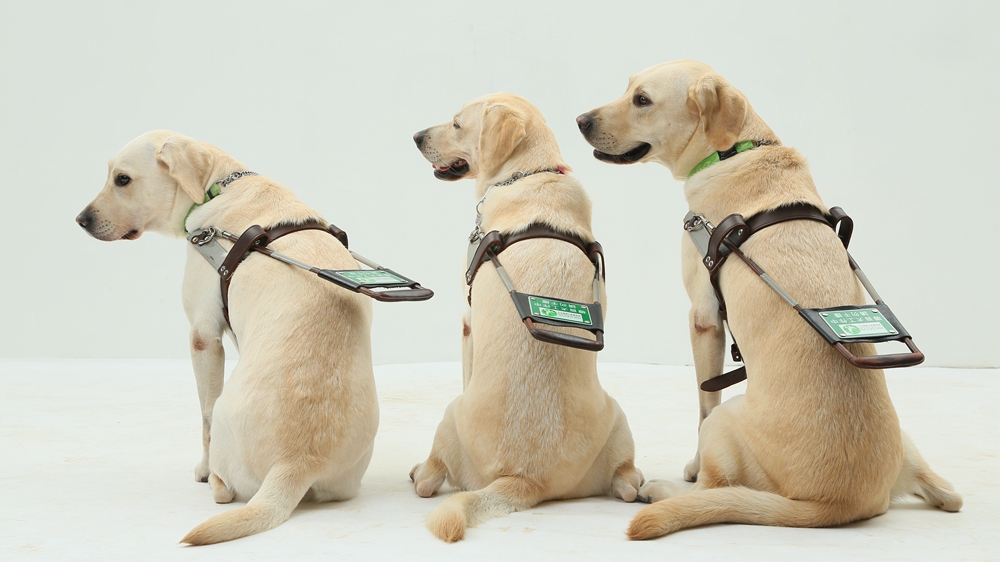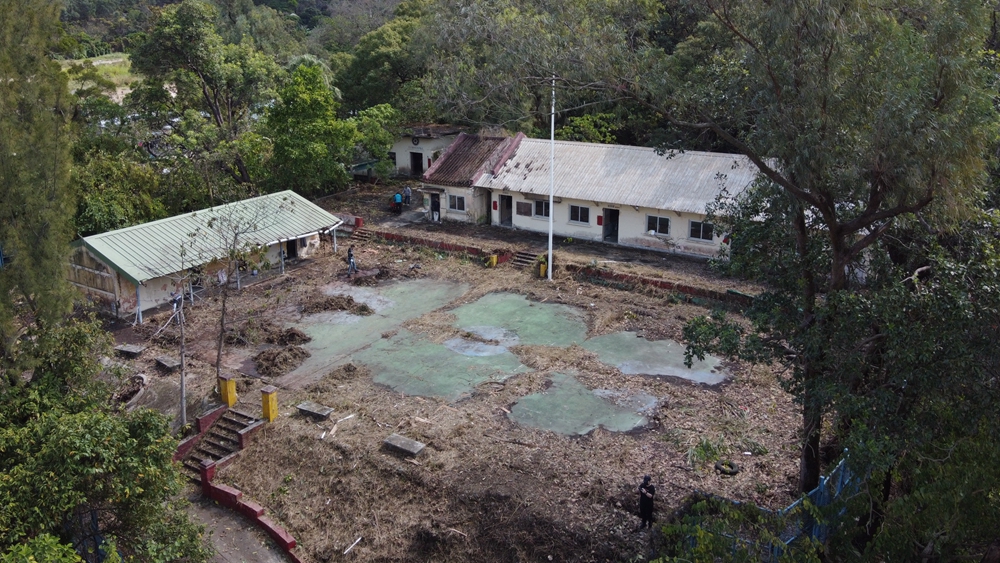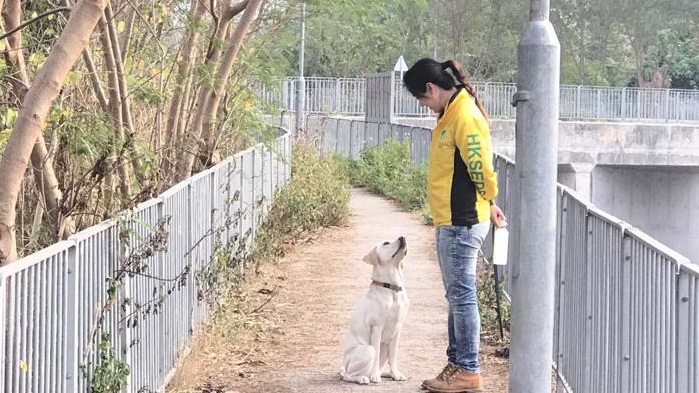
China's Hong Kong Special Administrative Region is building its first dedicated training facility for guide dogs.
A former school is being redeveloped into a state-of-the-art complex that will revolutionize the support available for the city's blind and partially sighted community.
The facility will be run by Seeing Eye Dog Services (HKSEDS), a non-profit organization. It has been operating for almost 10 years and has provided more than 20 dogs to people in need.
In 2012 it became the first internationally accredited guide dog school in China.
Hong Kong resident Koonie is among those who have benefited from the service. "Before I was paired with my dog, I used to get very anxious going out at night as I could only see lights," she said.
"I used to have many injuries by walking into objects such as bicycles handlebars, overhanging scaffolding and street signs that a walking cane could not detect."
She said the arrival of her dog Happy changed all that. "My dog can guide me through obstacles, help me cross the road, and lead me to post boxes and bus stops," she said. "She has given me independence and lifted a dark cloud over my head. She is not only a good guide, but also family and a dear companion."

A view of a site for guide dog training. /CGTN
A view of a site for guide dog training. /CGTN
HKSEDS currently has no headquarters, and all its new dogs live with their trainers until they are ready to be matched with a visually impaired owner.
HKSEDS Chairman Raymond Cheung said the new school will transform that process. "With the new facilities, the administration, operation, dog training, and user training can all be grouped in one place," he said.
"This will be more systematic, increase efficiency, and improve the overall quality of the service we can offer."
The new school will have a range of specialized training zones including bridges, tunnels and areas with different ground surfaces to help prepare the dogs for city life. This is especially useful to help them learn how to navigate the densely populated streets and varied urban landscapes of Hong Kong.
The dogs will all have kennels on site, and the school will also offer temporary accommodation for their potential new owners, so the important initial matching process can take place in a controlled environment.

A dog with a trainer. /CGTN
A dog with a trainer. /CGTN
Guide dog trainer Brenda Pang said she can't wait to start working at the new center. "Training requires teamwork, but, currently, the trainers live all over Hong Kong and we do not have a place where we can train our dogs together and share feedback," she said.
"With the new facilities, we will have space to do group training every day, so I can see my fellow teammates and work together more often."
HKSEDS holds around 100 public talks and school education programs every year and hopes the new training facility will help them expand that by holding regular open days.
Chairman Raymond Cheung said public education is an essential part of the work they do. "We hope the public can learn more and accept the dogs in our community," he said.
"The dogs not only support visually impaired people to be more independent and walk with confidence, they also become soulmates to them."
HKSEDS aims to have the new school up and running by the end of the year.

